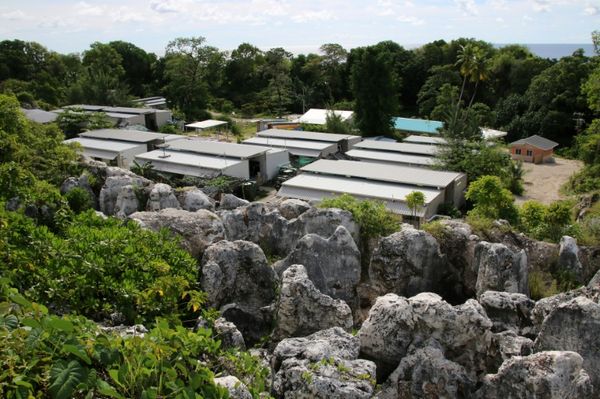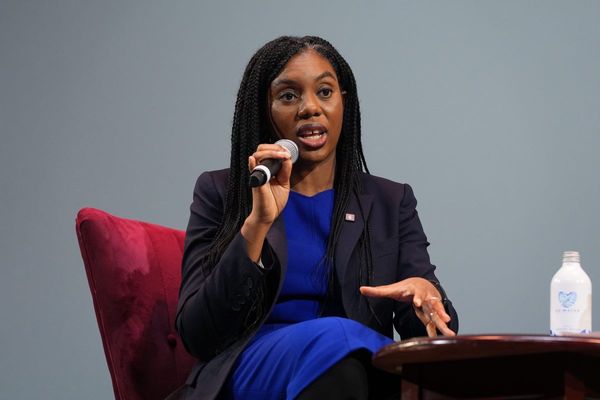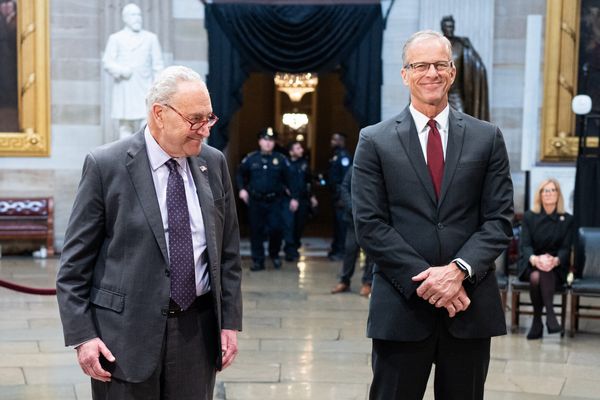
The election of Ebrahim Raisi as president of Iran has completed a hard-line conservative sweep of all key political institutions in the country. Raisi won handily in last week’s election, but his victory came after the Guardian Council that vets candidates blatantly gerrymandered the race by eliminating all notable moderate and reformist contenders. Public anger and apathy then led a record low turnout.
The brazen power grab has shocked Iranians, who registered their displeasure by not voting or casting protest votes. Iranians by and large see the outcome as a worrisome threat to civil and political rights, and a setback for economic and social reforms. Many are disdainful of a president whose career is marked by overseeing the execution of thousands of political prisoners in the late 1980s.
Still, Iran’s sharp turn to the right is not necessarily so bad for the West in terms of what it wants most urgently from Iran: a nuclear agreement that would effectively curb Tehran’s nuclear program. In fact, it could make more likely the deal that has eluded the Biden administration since it took office. There are historical parallels to consider, when opponents of engagement were the ones who concluded important diplomatic breakthroughs. A nuclear agreement with Iran will be a far cry from U.S. President Richard Nixon going to China or Israeli Prime Minister Menachem Begin forging the Camp David Accords, but the same counterintuitive logic could play out.
Whereas in 2013 the election of a moderate president was critical to sealing the nuclear deal with the United States, now a hard-line conservative seems necessary for concluding a new one. Early on, the Biden administration understood that it would be counterproductive to tie nuclear negotiations to Iran’s presidential election. In fact, by ignoring the presidential election as a deadline and settling for a prolonged process that would extend into the summer, the administration made it easier for Supreme Leader Ali Khamenei to support progress in Vienna.
It’s worth recalling that Khamenei had approved the 2015 nuclear deal and supported Iran’s compliance with it. However, once then-U.S. President Donald Trump withdrew from the deal, Khamenei distanced himself from it and favored Iran’s incremental backing away from compliance with its terms until Washington would return to the agreement. Saying that the United States could not be trusted, he flatly rejected the idea of a new deal.
He has, however, stood apart from hard-liners in the Islamic Revolutionary Guard Corps or the parliament who called for Iran to abandon the nuclear deal altogether and even to leave the Nuclear Non-Proliferation Treaty. His position was more in the middle.
He strongly criticized the United States but continued to say that Iran would abide by the deal that it had signed. He defined a narrow path for fresh talks with the United States and provided public cover for the negotiations, silencing the most boisterous critics. He did not endorse Vienna talks directly, voicing his skepticism about the results to placate his right flank, but then gave a clear signal that they would go ahead. In a speech, he said, “those in charge of the country [i.e., President Hassan Rouhani’s team] have its best interests at heart. We pray for them and will help them.”
Hard-liners had to swallow their opposition. Taking their cue from the supreme leader, during the campaign all conservative candidates, Raisi included, did not mince words criticizing how Rouhani had negotiated the 2015 deal, but none said that they would abrogate the agreement. Raisi emphasized the imperative of lifting economic sanctions on Iran and said that “it should not be said that I am opposed to the nuclear deal.” He told voters that he was prepared to accept a deal. He did not have to pay a political price for negotiating it but stands to reap the economic benefits that it will bring.
All this is in keeping with the supreme leader’s game plan. The Vienna talks have now arrived at a critical juncture. There is general agreement at the technical level about Iran’s path back into full compliance with the 2015 nuclear deal and the sanctions that the U.S. government will lift in exchange.
What the United States has not agreed to is Iran’s demand for guarantees that the deal will not be once again upended by a future U.S. president. Another Trumpian withdrawal from the deal is a costly risk for Iran and could conceivably come as soon as early 2025. Washington is also demanding that Iran formally agree to follow-on talks on further curbs to its nuclear program, as well as regional issues and its missile program, something Iran has so far refused to countenance.
The supreme leader is facing a difficult decision. It falls on him to give the green light to an agreement in Vienna. Iranian society and the country’s economy are under severe pressure. Iranians want relief, and he does not want to be seen as rejecting a viable deal. He also would not want to favor a deal, with its attendant compromises, with a moderate president in office.
A moderate, or even a moderate conservative president, would be at a disadvantage in managing reaction from hard-liners, and Khamenei would not want his decisions to be construed as favoring moderates. He does not like the image of himself and a moderate president confronting a hard-liner opposition. Now, with Raisi as president, hard-liners will own the difficult decision and will have to defend and implement it—and if a deal is signed, the detractors will fall into line.
Although hard-liners have routinely characterized the 2015 nuclear deal as a calamity and a treacherous betrayal of Iran’s national interests by pro-West moderates, the same ardent voices have treated Raisi’s election as a providential turn of fortune. Raisi has the supreme leader’s full support and stands in defense of all the values and institutions near and dear to hard-liners’ hearts. He is their candidate, and his base is vested in his success. There is a bond of trust and shared interest between Raisi and hard-liners that will allow him to get their acquiescence to a deal.
In an early indication, less than a week after his election, Raisi has formed a committee to ensure that any new agreement in Vienna is in accordance with the 2015 nuclear deal, which would pave the way for accepting the new agreement as being compatible with the deal that the supreme leader had already approved. The committee includes some of the most hard-line members of parliament, notably one of the nuclear deal’s most visible and vociferous critics, Mojtaba Zolnour, as well as Iran’s chief negotiator in Vienna, Abbas Araghchi—and is led by former Foreign Minister Ali Akbar Salehi, who was on the 2015 nuclear negotiations team.
There is also another more important leadership change on the horizon. Indeed, the recent election has been overshadowed by the looming succession to the 82-year-old supreme leader. Khamenei wants firm conservative control of all of Iran’s levers of power when that moment comes. Raisi’s election has now achieved that.
Khamenei is acutely aware that to manage a successful succession Raisi and conservatives must succeed in office, and the country should be socially and politically stable. Those conditions can be achieved only if there is a deal between the United States and Iran. Succession to a new supreme leader could be messy and unpredictable if it comes when Iran is reeling under severe economic pressure and facing potential war with the United States. A smooth succession requires a U.S.-Iran deal.
Raisi will also see benefit in this. He has been elected with the smallest number of votes of any president elected in the first round of voting in years. The voter turnout of around 49 percent is also the lowest in the history of the Islamic Republic. Although Raisi won 72 percent of the votes cast, his claim to a landslide victory rings hollow, and in the eyes of Iranians it does not confer on him the requisite legitimacy. His engineered selection flouts the country’s republican principles and represents a rollback of the modicum of democratic practices the population has been accustomed to.
For Raisi, the presidency could be a stepping stone to one day becoming supreme leader. Winning the presidency has given him a boost, but the race to be Khamenei’s successor is only beginning, and there will be other contenders. Raisi is being touted as an obvious choice, but whether that continues to be the case will depend on how he fares as president.
He must compensate for his legitimacy deficit and build public support beyond his narrow base, and he will have to gain a reputation as a seasoned statesman able to run the country. Most immediately, the measure of all that in the eyes of Iranians would be a buoyant economy and palpable improvement in their daily lives. During the presidential campaign, Raisi promised to cut down on corruption, reduce inflation and unemployment, and help small businesses. His talk of boosting the economy, however, implied a coming jump in trade revenue and oil income—in other words, a successful conclusion to the Vienna talks.
It is true that Iran’s conservatives remain inherently hostile to the United States, preaching resistance and self-reliance and closer ties with Russia and China. Raisi has made no secret that this is his mantra. Still, behind the veneer of ideological obduracy a new realism is setting in, one that comes with total victory. In contrast with earlier times when conservatives torpedoed outreaches to the West to hamstring their moderate opponents, now they must seek stability in their relations with the world if they are to successfully consolidate power. For that, they must first deal with the United States.
The West has often looked to Iranian elections as a potential pivot point, a hopeful moment when the Iranian people could propel proponents of reform to turn the tables on the hard-line guardians of the Islamic Republic. There was no such moment in this latest presidential election. Its significance, rather, lies in ending that periodic contest for power. As a result, the fortunes of conservatives are now tied to securing a nuclear deal, which is also Washington’s main goal with Iran now.
This runs counter to common assumptions about Iran in the West. Since Mohammad Khatami’s presidency in 1997, the West has assumed that an opening with Iran is only possible if moderates and reformists win power. Recognizing that Raisi’s election turns that maxim on its head, the Biden administration should take advantage of this opportunity—not to push for a grandiose opening with Iran, but to get a durable nuclear agreement and reduce regional tensions so the United States can shift its focus to contending with China.







